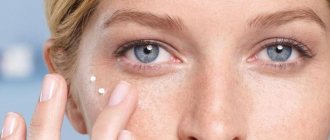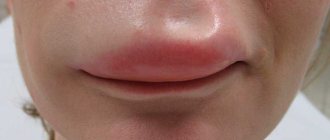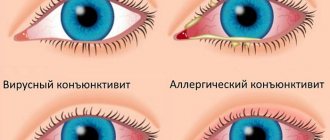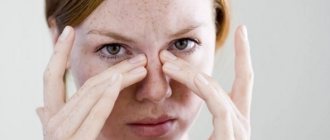Dental treatment
If the dentist does not treat the tooth correctly or completely, it can cause swelling in the cheek.
Causes:
- Allergic reaction.
It appears in the patient as a result of intolerance to the components of the filling. To eliminate swelling, you should visit a doctor and replace the installed filling with a hypoallergenic one.
- Removal of a tooth.
If the cheek is swollen after surgery, then the patient probably ignored the doctor’s recommendations and ate solid or hot foods.
- Nerve removal.
Swelling occurs if part of the nerve is not removed. It is important to see a dentist immediately so as not to lose a healthy tooth.
- Gum section.
Usually required to remove accumulated pus. If the swelling does not subside while taking anti-inflammatory drugs, this may be a serious symptom that requires the attention of a specialist.
Facial swelling - all causes and diseases | University Clinic
Facial swelling - all causes and diseases
Diseases accompanied by a symptom - swelling of different areas of the face.
Facial swelling is most often associated with fluid accumulation in the tissues. This is a symptom of many diseases.
Swelling can be simple or inflammatory. Simple swelling is not accompanied by additional symptoms. With inflammatory edema, the skin turns red, becomes thicker, hotter and painful to the touch. Inflammatory swelling of the face occurs with fever and other symptoms depending on the etiology and location.
What causes swelling on the face?
A swollen face is often caused by excess water in the body. This is possible, for example, before menstruation, in which case the swelling of the face will be temporary, appearing in the morning.
When swelling occurs only under the eyes, you can suspect kidney disease, problems with the thyroid gland or adrenal glands. Also, swelling of the face is possible due to the development of gumboil - in this case the swelling will be one-sided. When the skin becomes inflamed, swelling spreads to the entire face.
The main causes of facial swelling:
- Systemic diseases that occur without inflammation and itching - nephrotic syndrome, acute glomerulonephritis, angioedema, hypothyroidism.
- Trauma, most often mechanical. Typically manifests as swelling with redness, bruising, or the presence of a hematoma. May be accompanied by a skin wound.
- Allergy, characteristic symptom is itching. Sudden swelling of the face can be caused by a dangerous allergic reaction (Quincke's edema).
- Inflammation associated with damage to cells and tissues and increased permeability of vascular walls under the influence of an infectious agent. The inflammatory response is accompanied by redness, swelling, fever and pain.
The most common bacterial etiological factors are:
- Group A beta-hemolytic streptococci: pyogenic streptococci – Streptococcus pyogenes. Less common is group B, which causes inflammatory changes in the facial area in newborns.
- Staphylococcus aureus, methicillin-resistant strains CAMRSA, MRSA.
- Streptococcus pneumoniae - Streptococcus pneumoniae, which causes inflammation of the connective tissue of the face and orbital area.
- Haemophilus influenzae. Causes inflammation and swelling of the eyelids in children under 2 years of age.
- Green streptococci – Streptococcus viridans, anaerobic bacteria: Prevotella, Fusobacterium, Peptostreptococcus (odontogenic infections).
Table 1. Causes of facial swelling
| Swelling site | Disease |
| Swelling of the frontal region | Osteomyelitis (Pott's tumor) with periosteal abscess (rare) |
| Swollen eyelids | Eye diseases:
Orbital complications of sinusitis:
Intracranial complications of sinusitis (eg, thrombotic cavernous sinusitis - very rare) Acute glomerulonephritis Hypothyroidism |
| Swelling of the cheeks |
|
| Swelling of the parotid gland |
|
| Swelling of the base of the nose and upper lip | Injury |
| Tumor of the submandibular region | Inflammation of connective tissue in newborns |
| Tumor of the chin area | Ludwig syndrome |
Diseases occurring with inflammatory swelling of the face
- Inflammation, a deep infection of the skin and subcutaneous tissue, developing as a complication of inflammation of the hair follicle, sweat or sebaceous gland.
Intramuscular or intravenous antibiotic therapy is required around the apex or vestibule of the nose and upper lip because, due to the anatomical connections of the vessels in this area with the vessels of the brain, inflammation can cause a life-threatening complication. - Complications of rhinitis and paranasal sinuses.
- Inflammation of the orbit, eyelids and lacrimal system.
- Mumps.
- Erysipelas: streptococcal inflammation of the skin and connective tissue of the lymphatic system.
- Inflammation of the soft tissues of the sublingual and submandibular area, most often developing as a result of periodontal changes.
Swollen cheek, swelling under the eyes - what does this mean?
Facial swelling is often the result of mechanical trauma. In this case, the swollen cheek hurts, swelling occurs under the eyes, and sometimes skin damage and bleeding are visible. Symptoms may be the result of a beating, a fall, or a traffic accident.
For mild head injuries without associated symptoms (loss of consciousness, nausea, vomiting, severe headache), cold ice packs provide relief. The occurrence of additional symptoms or a dent in the skull indicates serious damage. In such cases, you should urgently consult a doctor.
Dental problems also cause facial swelling. Diseases associated with the formation of periodontal abscess are accompanied by severe pain, redness of the skin around the tooth, and difficulty eating and speaking. Characterized by asymmetrical swelling of the face on one side.
Periodontal abscess
Causes of a swollen face – diseases of the kidneys, thyroid gland, adrenal glands
Swelling in the face is one of the symptoms of kidney problems. With nephrotic syndrome, the structure of the renal glomeruli is disrupted and protein loss occurs.
Their concentration in the blood becomes less and less, which affects plasma pressure. In addition, sodium retention occurs. This leads to the accumulation of water in the tissues and the formation of edema.
Kidney disease is characterized by swelling under the eyes (usually swollen eyelids) and swollen shins.
Hormonal imbalance is also responsible for facial swelling; thyroid hormones play a special role in this. In the case of hypothyroidism, characteristic dense swelling appears. The skin of patients with hypothyroidism is cold, pale and dry. Myxedema mainly appears as a swollen face and eyelids, but also occurs on other parts of the body, such as the arms and legs. Facial features change frequently.
Adrenal hormones (mainly mineralocorticosteroids) are primarily responsible for the metabolism of electrolytes. Improper functioning of these organs leads to sodium retention and therefore contributes to the accumulation of excess water. Facial swelling is often a side effect when taking certain hormonal drugs - contraceptives and glucocorticosteroids.
Swollen face and neck with urticaria and Quincke's edema
A swollen face accompanied by a rash may be a manifestation of an allergic reaction. In this case, the swelling is accompanied by redness, burning and severe itching. In addition, numerous itchy blisters may appear.
Urticaria is caused by an allergic factor. This could include cosmetics, pollen, animal dander, medicines and some food products. Allergic reactions appear suddenly.
This is especially dangerous when swelling of the face and neck increases rapidly and causes difficulty breathing.
Urticaria also accompanies angioedema or Quincke's edema. It is characterized by sudden swelling of the face - lips, eyelids, oral mucosa, and cheeks swell. There are many reasons that cause such an attack. In addition to allergies, these may also be physical factors - a reaction to heat, cold, exertion, stress, certain medications or a genetic predisposition.
There may also be cases of facial swelling after an insect bite. If the patient is hypersensitive to insect venom, there will be significant swelling, redness and a severe reaction at the site of the bite.
Swelling of the face before menstruation - excess water in the body
Most women complain of swelling before menstruation. They are caused by hormone fluctuations. The reason for water retention is high levels of progesterone.
Swelling is noted on the face, calves, arms and legs. In addition, most women complain of swelling and tenderness of the mammary glands. As a result of the accumulation of a significant amount of fluid in the body during this period, you can gain about 2-3 kg.
A woman's body also tends to accumulate water during pregnancy.
Swelling during pregnancy
What tests are needed for facial swelling?
Diagnosis depends on symptoms and physical examination findings. The examination may include the following tests:
- Laboratory tests: serological tests, kidney function tests, thyroid hormones;
- Microbiological tests: culture of purulent contents, analysis for mycobacteria;
- Instrumental tests: ultrasound of the salivary glands, computed tomography, magnetic resonance imaging of the paranasal sinuses and central nervous system, dental radiography, pantomogram.
Facial swelling associated with bacterial infection
Facial swelling can occur as a result of a bacterial infection. Such swelling can be easily distinguished by special symptoms.
With erysipelas caused by streptococci, the skin is red, clearly separated from healthy tissue, tense and shiny. In addition to local symptoms, there are systemic symptoms - fever, chills, weakness. Treatment of erysipelas consists of antibiotic therapy.
Antibiotic therapy
Swollen face, eyelids, cheeks are also symptoms of inflammation of the orbital tissue, conjunctivitis, sinusitis, salivary glands, animal scratches and boils.
Table 2. Treatment of diseases associated with facial swelling
| Group of diseases | Treatment |
| Complicated cellulitis localized on the face, caused by group A streptococcus , Staphylococcus aureus , Haemophilus influenzae , B streptococcus | First-line drugs: second generation cephalosporins; Second-line intravenous drugs: amoxicillin/oral clavulanate in combination with cloxacillin |
| Staphylococcus aureus infections CAMRSA | Trimethoprim with sulfamethoxazole, doxycycline (over 12 years), clindamycin |
| Staphylococcus aureus MRSA infections | Glycopeptide antibiotic, linezolid, daptomycin |
| Abscesses | Surgical drainage |
Swelling due to poor lifestyle
It should be remembered that swelling on the face is often the result of an unhealthy lifestyle and poor diet.
Excessive accumulation of water in the body is caused by:
- Excess salt in the diet – by eating a lot of salty foods, we increase the concentration of sodium in the blood;
- Insufficient amount of protein in food;
- Alcohol use – a puffy face in the morning is often a sign of excessive drinking the previous day;
- Lack of physical activity.
Ways to relieve facial swelling resulting from an unhealthy lifestyle include black tea compresses, restorative masks, gentle facial massage and, above all, lifestyle and diet changes.
What to do if your cheek is swollen
To reduce swelling, you can use one of the following tips:
- Rinse your mouth with a solution of salt and soda.
This remedy has an antiseptic effect and helps destroy pathogens. You can enhance the effect by adding a couple of drops of iodine to the solution.
- Use chamomile infusion to rinse
, sage or other medicinal herbs that have anti-inflammatory properties.
- Apply a cold compress to the swollen cheek
if the swelling is caused by a bite or mechanical injury. This method is contraindicated in patients who have an elevated body temperature or a tumor that develops due to inflammatory processes. Warming compresses are not recommended.
- Lotions with aloe or Kalanchoe juice.
A cotton wool soaked in the juice of the plant is applied to the inside of the affected cheek.
If the described methods do not eliminate the problem, you should seek help from a doctor. The day before, you should not take painkillers and anti-inflammatory drugs, so as not to complicate the diagnosis.
Why the face swells: getting rid of puffiness
Sometimes after sleep we see a swollen and tired face in the mirror, causing negative emotions and a desire to get rid of the swelling as quickly as possible , so as not to cause ridicule from colleagues at work and not to listen to inappropriate remarks about the fun spent the night before. To effectively solve the problem, you should establish the cause of the pathology, as well as perform certain manipulations, which we will discuss in this article.
What causes the defect to appear
Swelling on the face often occurs due to hormonal imbalances in the body.
The face may swell due to undetected diseases of the internal organs, so if you constantly experience swelling, you must undergo a full medical examination of the body!
The most common causes of a swollen face are:
- drinking a large amount of liquid before bedtime;
- excessive consumption of salt and salty foods;
- infections and inflammations of the nasopharynx, various colds;
- allergic reactions to plants, medications, as well as certain types of cosmetics;
- diseases and pathologies of the heart, kidneys, liver, blood vessels, endocrine, reproductive and urinary systems;
- blood supply disorders, which may be caused by a low pillow or incorrect body position during sleep;
- intoxication of the body (poisoning);
- metabolic disorders;
- chronic vitamin deficiencies;
- frequent stress and nervous exhaustion;
- the period of pregnancy, puberty and menopause, when the hormonal balance in the body is disrupted;
- dental diseases of teeth and gums;
- neuritis and neuralgia of the facial ternary nerve, accompanied by pain and the appearance of facial asymmetry;
- diseases of the epidermis in the form of dermatitis, folliculitis, furunculosis and others, characterized by the formation of rashes and swelling;
- pathologies of the central nervous system due to insufficient blood circulation in the areas where the tumor appears;
- osteochondrosis of the cervical spine, which is dangerous due to compression of the vessels of the head and neck, poor circulation in the face, which ultimately leads to its swelling;
- diabetes mellitus, which causes malfunctions in all organs and systems.
If your lips are swollen
When lip swelling is observed, doctors name the following reasons for this phenomenon:
- food, medicinal, and allergic reactions to cold;
- damage to the mucous membrane caused by a skin reaction to chemical food dyes and aggressive cosmetic additives;
- climatic conditions (cold or dry wind, low indoor humidity, frost);
- diseases of the digestive tract, autonomic nervous system, blood vessels and liver;
- inflammatory and infectious processes on the skin.
Rubbing the skin with ice cubes helps with excessive swelling of the face.
When one half of the face swells
The formation of partial swelling is associated with the following factors:
- receiving mechanical damage as a result of a blow, bruise, fall, resulting in damage to soft tissues;
- bites of various insects;
- local inflammatory processes in organs and tissues located next to the tumor, as well as purulent skin lesions;
- angioedema, which appears due to severe allergies, most often localized in the lower half of the face;
- pathology of the blood vessels located in this area of the skin;
- erythema accompanied by swelling of the upper part of the face.
The determination of an accurate diagnosis should be made by a doctor after receiving data from basic clinical tests and the necessary laboratory tests that will help prescribe the correct therapeutic treatment.
Swelling of the face after solarium
Severe swelling on the face that occurs after visiting a solarium may be associated with:
- individual skin reaction to ultraviolet rays;
- an allergic reaction to the constituent components of the sunscreens used, usually characterized by redness, itching, puffiness of the face, which can even cause total swelling of the internal organs;
- increased arterial and intracranial pressure as a result of receiving a strong dose of radiation and a sharp rush of blood to the brain, most often accompanied by dizziness, nausea and headache;
- receiving a regular burn, which causes swelling due to the accumulation of fluid in the affected tissues of the epidermis.
Swelling of the right and left sides of the face
A tumor that occurs only on the right side of the face is associated with the following disorders:
- periodontitis, gumboil, cyst or abscess caused by dental diseases;
- ischemic changes in some facial tissues associated with vascular pathologies and impaired blood supply;
- development of otitis media or conjunctivitis with ear pain and watery eyes;
- right-sided sinusitis or sinusitis with runny nose and sinus congestion;
- dermatological diseases of an inflammatory, infectious nature against the background of rashes and the appearance of painful bumps on the skin, spreading to healthy, nearby tissues;
- angioedema problems.
Swelling that appears on the left side of the face while the right side is in normal condition can be provoked by:
- thrombophlebitis, which disrupts normal blood circulation and lymph outflow when fluid accumulates in certain tissues;
- vascular ischemia, disrupting the trophism of skin tissue, as well as metabolic and metabolic processes;
- damage to the nerve endings of vasomotor fibers resulting from pathological changes in the central nervous system;
- paralysis associated with a decrease in lymphatic drainage function and disruption of systemic blood flow on the affected side of the face;
- inflammatory processes occurring in this part of the brain;
- individual allergic manifestations;
- inflammatory, infectious and fungal infections of the ear, nose and throat;
- purulent processes in the teeth and gums located in this part of the face.
Facial massage helps a lot against swelling
Methods for eliminating the defect
Of great importance for effectively solving the problem is the accuracy of identifying the cause that caused swelling of the face.
- If it is triggered by stress, lack of sleep, general overwork of the body, the answer is clear and simple - calm down, have a good rest, try to completely relax.
- If you use night care cosmetics, you must apply it no later than 3 hours before going to bed, otherwise the moisture and lipids contained in the composition will remain on the surface of the skin and cause swelling.
- Performing simple massage effects by lightly and gently tapping your fingertips in the direction of the massage lines can give excellent results by activating blood circulation, eliminating congestion, accelerating lymph outflow and improving metabolic processes.
- Rubbing the skin with ice cubes prepared from decoctions of chamomile, St. John's wort, string, linden, sage or mint has an excellent effect, quickly eliminating swelling by accelerating blood flow, training blood vessels, improving metabolism and metabolic processes.
- A short-term refusal of salt, especially if you have previously abused salty foods, provides quick relief from facial swelling.
- Eating diuretic herbs (corn silk, rose hips, bear's ears) can also get rid of a swollen face, and very quickly.
- The use of home mechanical and other types of massagers is recommended for any skin, especially those with swelling, as it promotes blood flow to the face, eliminates stagnation, and improves lymphatic drainage and metabolic functions.
- Homemade masks based on raw and boiled potatoes, cucumber, aloe, green tea, parsley, dill are great for getting rid of swelling, improving local tissue trophism and the general condition of the skin.
- Compositions such as heparin ointment, lyoton gel, blefarogel will be effective helpers in the fight against a swollen face.
- Contrast compresses with alternating application of warm and cold napkins soaked in decoctions of medicinal herbs perfectly tone, improve blood circulation, and remove excess intercellular fluid naturally.
We wish you to get rid of this problem easily, quickly and effectively!
: How to remove swelling from the face
Source: https://careface.ru/pochemu-opuxaet-lico/
Prevention
Not all causes of facial swelling can be prevented, but the following recommendations may help:
- avoid known allergens, including problematic foods and medications;
- Maintain good oral hygiene by brushing and flossing regularly to avoid tooth and gum infections;
- Eat a healthy diet and reduce stress to stimulate the immune system, which protects the body from infections that cause swelling.
When should you see a doctor?
You should see your doctor if facial swelling does not go away after a few days, or if the problem is accompanied by other symptoms, such as pain, redness or itching.
Emergency medical care should be called if a person experiences symptoms of anaphylactic shock, or if they have been exposed to dangerous allergens or have been bitten by a poisonous insect.
Anaphylactic shock is a severe allergic reaction that can be fatal. If a person has an epinephrine auto-injector with them but is unable to use it themselves, someone around them should do so as directed in the instructions on the package.









